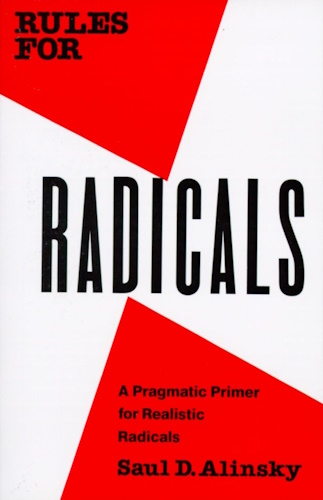

Rules for Radicals: A Practical Primer for Realistic Radicals

First published in 1971, Rules for Radicals is Saul Alinsky's impassioned counsel to young radicals on how to effect constructive social change and know “the difference between being a realistic radical and being a rhetorical one.” Written in the midst of radical political developments whose direction Alinsky was one of the first to question, this volume exhibits his style at its best. Like Thomas Paine before him, Alinsky was able to combine, both in his person and his writing, the intensity of political engagement with an absolute insistence on rational political discourse and adherence to the American democratic tradition.
Paperback: 224 pages
Publisher: Vintage (October 23, 1989)
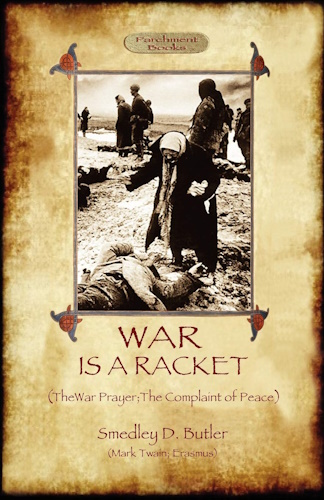

Major General Smedley D Butler was a military hero of the first rank, the winner of two Medals of Honour, a true 'fighting marine' whose courage and patriotism could not be doubted. Yet he came to believe that the wars in which he and his men had fought and bled and died were all pre-planned conflicts, designed not so much to defend America as to bloat the balance sheets of US banks and corporations. Filled with astounding details of the benefits the few make from the sufferings of the many, 'War is A Racket' is as relevant today as when it was first written. Mark Twain's 'The War Prayer' was considered so explosive by his contemporaries that the short anti-war piece was authorized for publication only after his death. 'The Complaint of Peace' was written in 1521 by Desiderius Erasmus, one of the greatest scholars of his day, as a reaction to the warlike times in which he lived. After an interval of nearly 500 years, this thoughtful critique of war still rings true.
Paperback: 108 pages
Publisher: Aziloth Books (August 15, 2011)
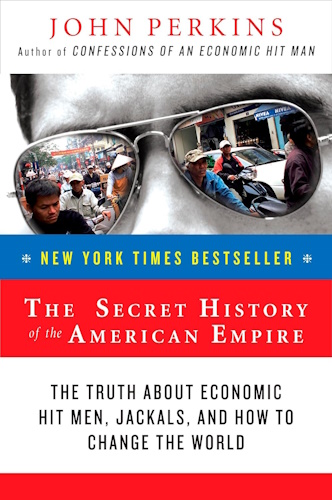

The Secret History of the American Empire

New York Times bestseller
From the author of the phenomenal New York Times bestseller, Confessions of an Economic Hit Man, comes an exposé of international corruption, and an inspired plan to turn the tide for future generations.
With a presidential election around the corner, questions of America's military buildup, environmental impact, and foreign policy are on everyone's mind. Former Economic Hit Man John Perkins goes behind the scenes of the current geopolitical crisis and offers bold solutions to our most pressing problems. Drawing on interviews with other EHMs, jackals, CIA operatives, reporters, businessmen, and activists, Perkins reveals the secret history of events that have created the current American Empire, including:
- • How the defeats in Vietnam and Iraq have benefited big business
- • The role of Israel as Fortress America in the Middle East
- • Tragic repercussions of the IMF's Asian Economic Collapse
- • The current Latin American revolution and its lessons for democracy
- • U.S. blunders in Tibet, Congo, Lebanon, and Venezuela
From the U.S. military in Iraq to infrastructure development in Indonesia, from Peace Corps volunteers in Africa to jackals in Venezuela, Perkins exposes a conspiracy of corruption that has fueled instability and anti-Americanism around the globe, with consequences reflected in our daily headlines. Having raised the alarm, Perkins passionately addresses how Americans can work to create a more peaceful and stable world for future generations.
Paperback: 384 pages
Publisher: Plume; Reprint edition (April 29, 2008)
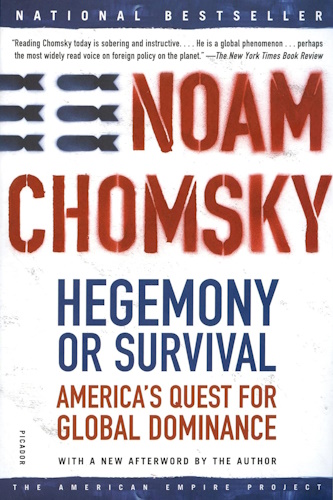

"Reading Chomsky today is sobering and instructive . . . He is a global phenomenon . . . perhaps the most widely read voice on foreign policy on the planet." -The New York Times Book Review
An immediate national bestseller, Hegemony or Survival demonstrates how, for more than half a century the United States has been pursuing a grand imperial strategy with the aim of staking out the globe. Our leaders have shown themselves willing-as in the Cuban missile crisis-to follow the dream of dominance no matter how high the risks. World-renowned intellectual Noam Chomsky investigates how we came to this perilous moment and why our rulers are willing to jeopardize the future of our species.
With the striking logic that is his trademark, Chomsky tracks the U.S. government's aggressive pursuit of "full spectrum dominance" and vividly lays out how the most recent manifestations of the politics of global control-from unilateralism to the dismantling of international agreements to state terrorism-cohere in a drive for hegemony that ultimately threatens our existence. Lucidly written, thoroughly documented, and featuring a new afterword by the author, Hegemony or Survival is a definitive statement from one of today's most influential thinkers.
About the Author
Noam Chomsky is the author of numerous bestselling political works, including Hegemony or Survival, Failed States, Imperial Ambitions and What We Say Goes. A professor of linguistics and philosophy at MIT, he is widely credited with having revolutionized modern linguistics. He lives outside Boston, Massachusetts.
Paperback: 304 pages
Publisher: Holt Paperbacks; Reprint edition (September 1, 2004)
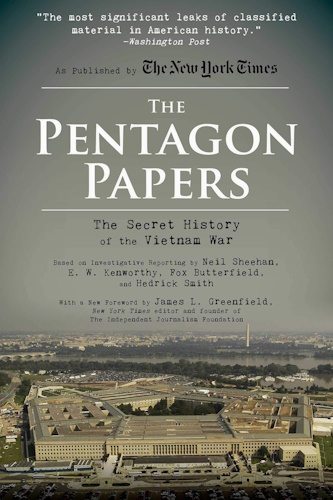

The Pentagon Papers: The Secret History of the Vietnam War

“The WikiLeaks of its day” (Time) is as relevant as ever to present-day American politics.
“The most significant leaks of classified material in American history.” –The Washington Post
Not Fake News! The basis for the 2018 film The Post by Academy Award-winning director Steven Spielberg, The Pentagon Papers are a series of articles, documents, and studies examining the Johnson Administration’s lies to the public about the extent of US involvement in the Vietnam War, bringing to light shocking conclusions about America’s true role in the conflict.
Published by The New York Times in 1971, The Pentagon Papers riveted an already deeply divided nation with startling and disturbing revelations about the United States' involvement in Vietnam. The Washington Post called them “the most significant leaks of classified material in American history” and they remain relevant today as a reminder of the importance of a free press and First Amendment rights. The Pentagon Papers demonstrated that the government had systematically lied to both the public and to Congress.
This incomparable, 848-page volume includes:
- The Truman and Eisenhower Years: 1945-1960 by Fox Butterfield
- Origins of the Insurgency in South Vietnam by Fox Butterfield
- The Kennedy Years: 1961-1963 by Hedrick Smith
- The Overthrow of Ngo Dinh Diem: May-November, 1963 by Hedrick Smith
- The Covert War and Tonkin Gulf: February-August, 1964 by Neil Sheehan
- The Consensus to Bomb North Vietnam: August, 1964-February, 1965 by Neil Sheehan
- The Launching of the Ground War: March-July, 1965 by Neil Sheehan
- The Buildup: July, 1965-September, 1966 by Fox Butterfield
- Secretary McNamara’s Disenchantment: October, 1966-May, 1967 by Hedrick Smith
- The Tet Offensive and the Turnaround by E. W. Kenworthy
- Analysis and Comment
- Court Records
- Biographies of Key Figures
With a brand-new foreword by James L. Greenfield, this edition of the Pulitzer Prize–winning story is sure to provoke discussion about free press and government deception, and shed some light on issues in the past and the present so that we can better understand and improve the future.
About the Author
Neil Sheehan is the author of A Fiery Peace in a Cold War and A Bright Shining Lie, which won the National Book Award and the Pulitzer Prize for nonfiction in 1989. He spent three years in Vietnam as a war correspondent for United Press International and The New York Times and won numerous awards for his reporting. In 1971, he obtained The Pentagon Papers, which brought the Times the Pulitzer Prize Gold Medal for meritorious public service. Sheehan lives in Washington, DC. He is married to the writer Susan Sheehan.
E. W. Kenworthy worked at The New York Times for nearly thirty years, in both New York and Washington. He passed away in January 1993.
Fox Butterfield is an American journalist and author. His work has been read and acclaimed widely, having received both a Pulitzer Prize for his role in publishing The Pentagon Papers and a National Book Award for China: Alive in the Bitter Sea.
Hedrick Smith is an American journalist, producer, and correspondent. During twenty-six years at The New York Times, he covered the civil rights struggle, the Vietnam War, and the Cold War, among many other monumental events in America history.
James L. Greenfield was the US secretary of state for public affairs as well as an editor for The New York Times for more than twenty years. He directly contributed to the publication of The Pentagon Papers and later founded the Independent Journalism Foundation.
Paperback: 848 pages
Publisher: Racehorse Publishing (December 12, 2017)
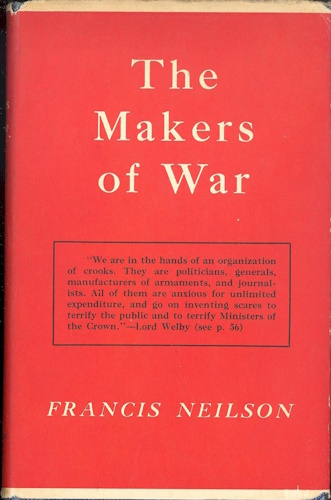

FOREWORD
Many times since the summer of 1945, when I finished writing The Tragedy of Europe, my American and British friends have asked me to give them, in short compass, my ideas about the economic and political disturbances which caused the nations to destroy Europe. This was no easy task for a man of my age, because my mind was so full of the long history of the troubles that it was difficult to select the chief features of the terrible drama and give adequate account of them in brief space.
In putting together this synopsis of the political and diplomatic factors of each crisis, I have selected matter overlooked by many academic historians. Moreover, with some of the writers who treat of the First World War and the consequences of the Treaty of Versailles, I notice a tendency to ignore many underlying causes that contributed to the strife. Difficult as it is to stand aloof and forget one's nationality and loyalty to a government or its chief minister, this must be done if the student is to form a clear idea about the causes of wars. In future, the investigator in this branch of the art of historical literature must conduct his work in a manner as cold blooded as that of a biochemist in his laboratory. National prejudices and party loyalties ought to have no place in the task that has to be done. Indeed, it will be necessary for the students (and I think chiefly of them) to pursue the line of inquiry laid down by Lord Acton in his Inaugural Lecture at Cambridge University. The fact is the dominant of research, and the student must not be afraid of tracing it to its lair. This was finished in February, 1950, before anyone dreamed of a war in Korea. What has taken place in the world since Hitler invaded Poland is not within its compass. The volume is brought to a close with the end of diplomatic negotiations in September, 1939- It is intentionally provocative and, as a London publisher says, a forceful work. The purpose of the author is to rouse students out of their nationalistic attitude to these wars and, if they be interested in the matter at all, to force them to a deeper investigation of the events surveyed in this book, so that they may learn for themselves the influences and directions of men behind the scenes who instigate the crises that force governments to choose war rather than the humiliation of confessing they have blundered.
August 1, 1950
Hardcover: 240 pages
Publisher: C.C. Nelson Pub. Co; 2nd Edition edition (1950)


Great Britain, the Jews and Palestine

This astonishing booklet, written by one of Britain's leading Zionists in the 1930s, shows how the Zionist lobby manipulated America into the First World War against Germany in exchange for the promise to give Palestine to the Jews as a homeland.This work was originally directed as a complaint against the British government for failing to live up to its promise after the Jewish lobby had lived up it to its promise. It lists the names, dates and places of how these remarkable events occurred, and even accused the British of endangering Jews in Germany at the time, where the Jewish role in bringing the U.S. into the war was well-known and one of the major causes of anti-Semitism in Germany. This is the original text along with a new introduction which provides a complete historical background and summary.
Paperback: 34 pages
Publisher: lulu.com (July 22, 2012)
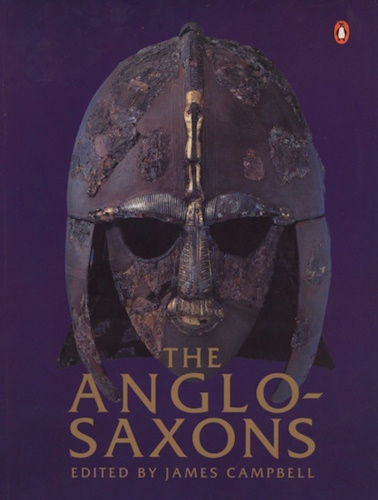

In this major survey, three distinguished historians produce an exciting introduction to the field.
Although the "Lost Centuries" between AD400 and 600 suffer from a scarcity of written sources, and only two writers, King Alfred and the Venerable Bede, dominate our understanding of later times, the authors have created a rich and thought-provoking account of the stormy era when Britain became Christian and sustained several waves of Viking invaders. A single nation, they suggest, slowly emerged from the rivalries and fluctuating fortunes of separate kingdoms like Mercia, Wessex and East Anglia. Major figures such as Offa, Alfred, Edgar and Cnut are discussed in detail, while the stunning illustrations convey the immense achievements of Anglo-Saxon centuries were 'simply a barbarous prelude to better things'.
Paperback: 272 pages
Publisher: Penguin Books; Reprint edition (August 6, 1991)
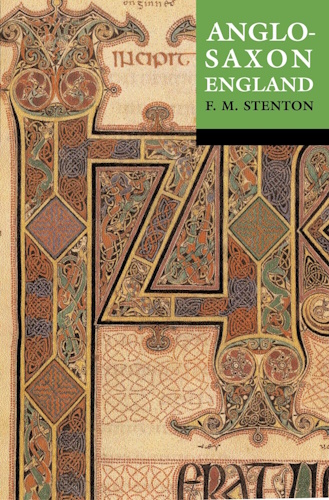

Anglo-Saxon England (Oxford History of England)

Discussing the development of English society, from the growth of royal power to the establishment of feudalism after the Norman Conquest, this book focuses on the emergence of the earliest English kingdoms and the Anglo-Norman monarchy in 1087. It also describes the chief phases in the history of the Anglo-Saxon church, drawing on many diverse examples; the result is a fascinating insight into this period of English history.
Paperback: 812 pages
Publisher: Oxford University Press; 3 edition (September 20, 2001)
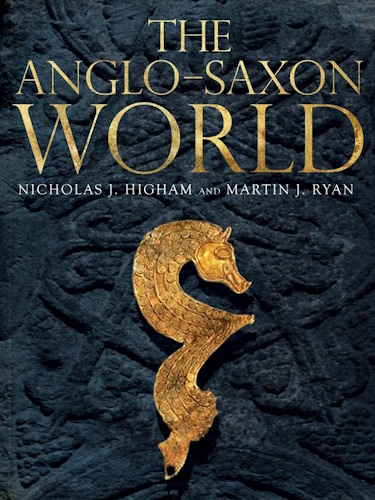

The Anglo-Saxon period, stretching from the fifth to the late eleventh century, begins with the Roman retreat from the Western world and ends with the Norman takeover of England. Between these epochal events, many of the contours and patterns of English life that would endure for the next millennium were shaped. In this authoritative work, N. J. Higham and M. J. Ryan reexamine Anglo-Saxon England in the light of new research in disciplines as wide ranging as historical genetics, paleobotany, archaeology, literary studies, art history, and numismatics. The result is the definitive introduction to the Anglo-Saxon world, enhanced with a rich array of photographs, maps, genealogies, and other illustrations.
The Anglo-Saxon period witnessed the birth of the English people, the establishment of Christianity, and the development of the English language. With an extraordinary cast of characters (Alfred the Great, the Venerable Bede, King Cnut), a long list of artistic and cultural achievements (Beowulf, the Sutton Hoo ship-burial finds, the Bayeux Tapestry), and multiple dramatic events (the Viking invasions, the Battle of Hastings), the Anglo-Saxon era lays legitimate claim to having been one of the most important in Western history.
Paperback: 496 pages
Publisher: Yale University Press; Reprint edition (October 27, 2015)
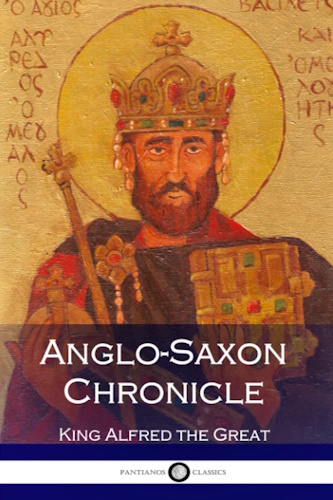

Anglo-Saxon Chronicle (Old English Books)

The Anglo-Saxon Chronicle, the great history authored by King Alfred the Great, is published here complete with a scholarly introduction by James Ingram.
One of the most famous works of history ever written about Saxon times, the Anglo-Saxon Chronicle is a group of chronologically arranged annals of the major events throughout the history of the Anglo-Saxon peoples. The original manuscripts survived in parts, which are complexly interrelated, with some updated during the early Middle Ages to record historical events that following the death of King Alfred. This edition is an amalgamation of several surviving manuscripts, with the final record concluding in 1154.
There is some confirmed bias in the text regarding events which were politically contentious at the time. However, the Anglo-Saxon Chronicle is a work of gargantuan and undisputed importance and thoroughness. It excels at providing historians and readers alike a portrait of England through the years between the departure of the Roman Army and the Norman conquest of the country, and has proven good grounding for further historical investigations of the era.
The work is originally thought to have been commissioned by King Alfred in around 890 as part of the monarch's overall enthusiasm for education and the need for historical records. It is likely that the King reviewed aspects of the text, although historians generally agree that most of the writing itself was likely accomplished by a scribe of the royal court.
The translation from Old English to Modern English is by two men; the Reverend James Ingram, and Dr. J. A. Giles. Both boast a great experience with the early forms of the English language, and their interpretation of King Alfred's history remains one of the most respected ever published.
Paperback: 170 pages
Publisher: CreateSpace Independent Publishing Platform (November 23, 2016)
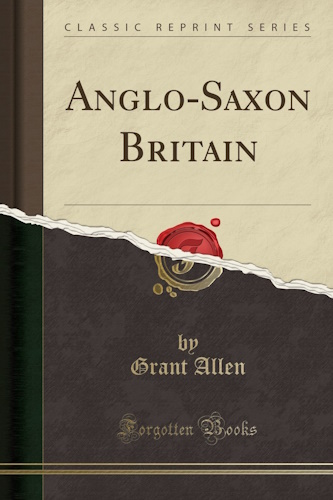

Anglo-Saxon Britain (Classic Reprint)

Excerpt from Anglo-Saxon Britain
This little book is an attempt to give a brief sketch of Britain under the early English conquerors, rather from the social than from the political point of View. For that purpose not much has been said about the doings of kings and statesmen; but attention has been mainly directed towards the less obvious evi dence afforded us by existing monuments as to the life and mode of thought of the people themselves. The principal object throughout has been to estimate the importance of those elements in modern British life which are chiefly due to purely English or Low Dutch influences.
About the Publisher
Forgotten Books publishes hundreds of thousands of rare and classic books. Find more at www.forgottenbooks.com
This book is a reproduction of an important historical work. Forgotten Books uses state-of-the-art technology to digitally reconstruct the work, preserving the original format whilst repairing imperfections present in the aged copy. In rare cases, an imperfection in the original, such as a blemish or missing page, may be replicated in our edition. We do, however, repair the vast majority of imperfections successfully; any imperfections that remain are intentionally left to preserve the state of such historical works.
Paperback: 262 pages
Publisher: Forgotten Books (April 23, 2017)
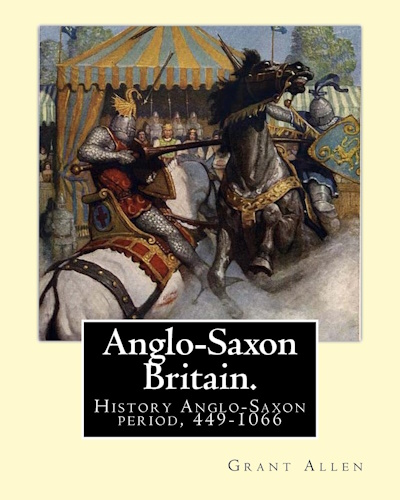

Anglo-Saxon Britain: History Anglo-Saxon period, 449-1066

Charles Grant Blairfindie Allen (February 24, 1848 – October 25, 1899) was a Canadian science writer and novelist, and a proponent of the theory of evolution.Allen was born near Kingston, Canada West (known as Ontario after Confederation) - the second son of Catharine Ann Grant and the Rev. Joseph Antisell Allen, a Protestant minister from Dublin, Ireland. His mother was a daughter of the fifth Baron of Longueuil. He was educated at home until, at age 13, he and his parents moved to the United States, then to France and finally to the United Kingdom. He was educated at King Edward's School in Birmingham and at Merton College in Oxford, both in the United Kingdom. After graduation, Allen studied in France, taught at Brighton College in 1870–71 and in his mid-twenties became a professor at Queen's College, a black college in Jamaica. Despite [citation needed] his religious father, Allen became an agnostic and a socialist. After leaving his professorship, in 1876 he returned to England, where he turned his talents to writing, gaining a reputation for his essays on science and for literary works. A 2007 book by Oliver Sacks cites with approval one of Allen's early articles, 'Note-Deafness' (a description of what became known as amusia, published in 1878 in the learned journal Mind). His first books dealt with scientific subjects, and include Physiological esthetics (1877) and Flowers and Their Pedigrees (1886). He was first influenced by associationist psychology as expounded by Alexander Bain and by Herbert Spencer, the latter often considered[by whom?] the most important individual in the transition from associationist psychology to Darwinian functionalism. In Allen's many articles on flowers and on perception in insects, Darwinian arguments replaced the old Spencerian terms, leading to a radically new vision of plant life that influenced HG Wells and helped transform later botanical research. On a personal level, a long friendship that started when Allen met Spencer on his return from Jamaica grew uneasy over the years. Allen wrote a critical and revealing biographical article on Spencer that was published after Spencer's death.After assisting Sir W. W. Hunter in his Gazeteer of India in the early 1880s, Allen turned his attention to fiction, and between 1884 and 1899 produced about 30 novels. In 1895, his scandalous book titled The Woman Who Did, promulgating certain startling views on marriage and kindred questions, became a bestseller. The book told the story of an independent woman who has a child out of wedlock.In his career, Allen wrote two novels under female pseudonyms. One of these, the short novel The Type-writer Girl, he wrote under the name Olive Pratt Rayner. Another work, The Evolution of the Idea of God (1897), propounding a theory of religion on heterodox[citation needed] lines, has the disadvantage[original research?] of endeavoring to explain everything by one theory. This "ghost theory" was often seen[by whom?] as a derivative of Herbert Spencer's theory. However, it was well known and brief references to it appear in a review by Marcel Mauss, Durkheim's nephew, in the articles of William James and in the works of Sigmund Freud. The young G. K. Chesterton wrote on what he considered the flawed premise of the idea, arguing that the idea of God preceded human mythologies, rather than developing from them. Chesterton said of Grant Allen's book on the evolution of the idea of God "it would be much more interesting if God wrote a book on the evolution of the idea of Grant Allen".
Paperback: 96 pages
Publisher: CreateSpace Independent Publishing Platform (October 3, 2016)


English history is the story of a people who first settled an island off the coast of continental Europe thousands of years ago and went on to rule most of the known world. This fascinating book spans centuries and shows how people like Richard the Lionheart and Elizabeth I and events such as the Norman Conquest and the defeat of the Spanish Armada shaped not just Britain but the world as we know it.
Paperback: 248 pages
Publisher: CreateSpace Independent Publishing Platform (December 3, 2016)

The History of England: Volume I
David Hume (7 May 1711 to 25 August 1776) was a Scottish philosopher, historian, economist, and essayist, known especially for his philosophical empiricism and skepticism. He was one of the most important figures in the history of Western philosophy and the Scottish Enlightenment.[In 1754 to 1762 Hume published the History of England, a six-volume work of immense sweep, which extends, says its subtitle, “From the Invasion of Julius Caesar to the Revolution in 1688”. Inspired by Voltaire's sense of the breadth of history, Hume widened the focus of history, away from merely Kings, Parliaments, and armies, to literature and science as well. He argued that the quest for liberty was the highest standard for judging the past, and concluded that after considerable fluctuation, England at the time of his writing had achieved “the most entire system of liberty, that was ever known amongst mankind.”This Volume I of the Chronicon Edition covers the period from Julius Caesar’s invasion of England to the reign of King John.
Paperback: 530 pages
Publisher: CreateSpace Independent Publishing Platform (April 1, 2013)
![]()
![]()